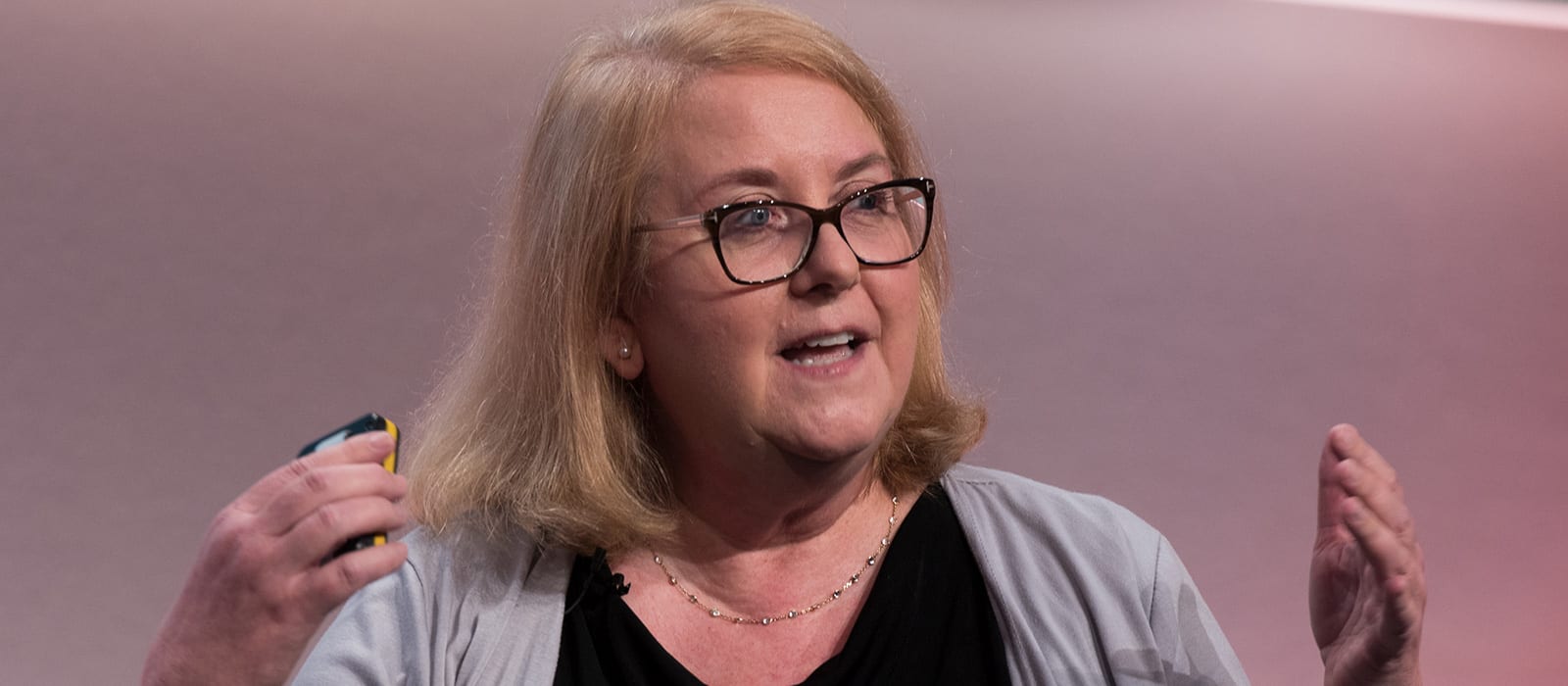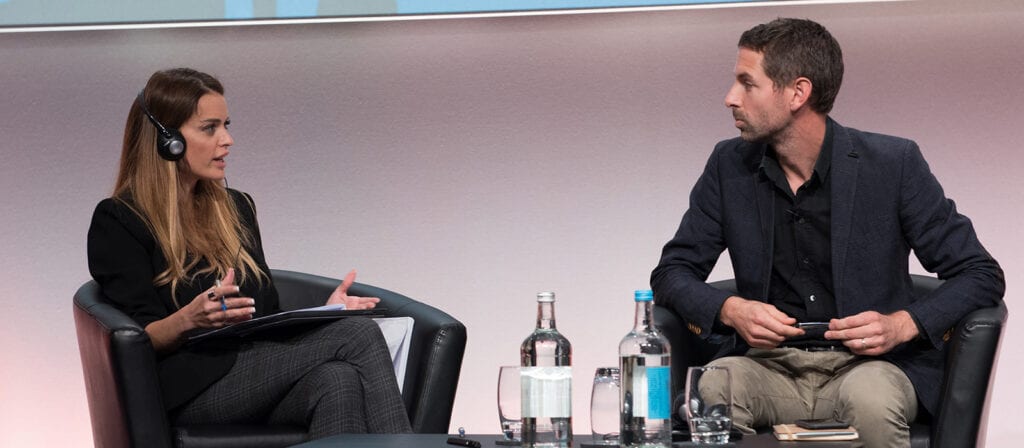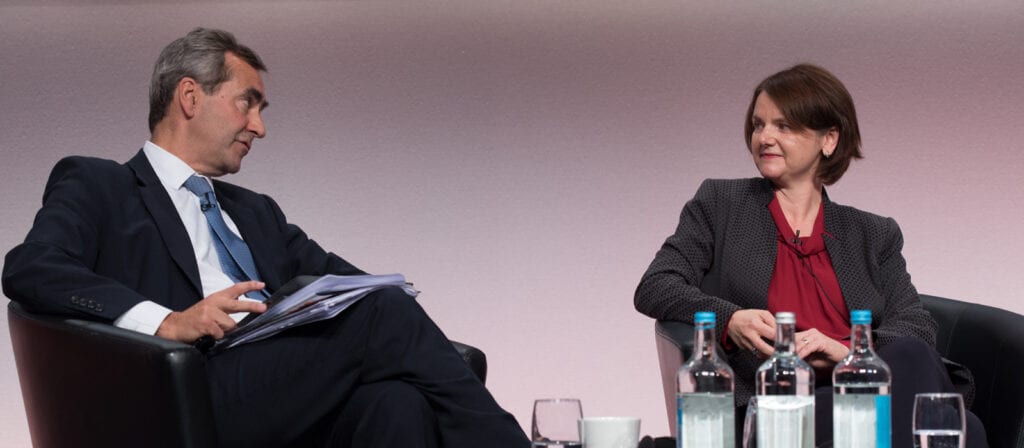Impact of emerging technologies on insurers
In a survey, 41% of representatives from ICMIF member companies stated that mobile technology was having the greatest impact on their business today, followed by 17% saying software-as-service and 12% citing cloud technologies. Looking five years into the future, the technology that was deemed to have the greatest impact on businesses was AI (said 40% of attendees), followed by the IoT (13%) and robotic process automation/RPA (9%).
It is clear that mobile technology is already having a big impact on insurers, especially in emerging markets. For Uplift Mutuals (India), if it does not invest in emerging technologies, it can not bring mutual insurance solutions to their clientele who survive between USD 2 and USD 6 a day. It has just developed a new app to help it reach and service its clients. The app contains community data which is transparent. This is fundamental to the mutuality ethos of the application as each member can see where their contribution has gone and how it has helped to pay a particular claim. Creating this trust in the community (especially in India where there is high levels of financial and investment fraud) is imperative for Uplift as it advances its mutual mission to provide health microinsurance and prevention services.
Software-as-a-service is beginning to have an impact, although it is being constrained by legacy systems. Leaders are moving to software-as-a-service to drive urgency and get things done, although IT departments are trying to figure out how to shift these costly and cumbersome core systems into the cloud to make it more efficient. AI and machine learning, IoT, platform economy and ecosystems, and RPA are all emerging technologies that will likely have a significant impact on insurers within the next three to five years (or even sooner in some geographies).
Achmea (Netherlands) is seeing a lot of IoT applications and start-ups impacting the (smart) home and health sectors. NTUC Income (Singapore) has developed a chatbot (Jiffy Jane) in collaboration with a travel technology start-up company, one of nine start-ups selected from NTUC’s insurtech accelerator programme, to sell travel insurance through Facebook Messenger. Powered by AI, the chatbot helps customers with queries and handles their travel insurance purchases. Thrivent (USA) is experimenting with RPA to form a bridge between its legacy systems and a newer API environment.
The (potential) impact of Blockchain technology in insurance is somewhat contentious, and a divergence can be seen between its use in advanced and emerging markets. For some, it is seen as a technology solution but with no problem to fix. However, in India, Uplift Mutuals believe blockchain will disrupt the market. Uplift is already testing blockchain to create their own mutual health insurance platform. Insurance penetration and education on the need for insurance is very low in India. Leveraging blockchain technology would allow speed and transparency to build and scale an effective mutual insurance system for the mass population.
“All insurance leaders should be technologists”
The increasing speed in which technology and innovation is influencing the insurance ecosystem leads to the suggestion that all insurance executives and leaders should be familiar with technology and the strategic implications of utilising resources such as cloud technology, software packages and data analytics.
In a second survey, ICMIF member representatives (the majority being CEOs or other C-suite or executives) were asked how much time they personally spend on innovation and emerging technologies. Around two-thirds said they spent under 20% of their time and 37% said under 10%. They were then asked, how much time should they spend on innovation and emerging technologies. These results were reversed, as two-thirds said they should spend more than 20% of their time whilst 20% said more than 40%. Thrivent concurred with this pattern, as they had found that their executive team were collectively spending less than 15% of their time on innovation and technology, but felt that they should be collectively spending closer to 40% of their time in this area.
Overcoming barriers to innovate
As an industry, insurance is not built for innovation. An insurer is built around stability – many ICMIF members have been in business for more than 100 years – and the ideas of innovation go against this fact. The biggest challenge for the industry is how do insurers shift from stability to agility. Insurance is also missing a big disruptor that will quickly take a large chunk of market share (such as Amazon, Netflix, Uber, etc). New entrants are entering the industry, but not dramatically disrupting the insurance business model as in other industries.
In response to this challenge, NTUC Income has started to work with fintech companies. Usually, a new product or initiative would involve a long cycle of planning. By learning from the start-up community, it is looking to experiment and develop proof of concepts (POC) to test new business models – with permission to fail. Its travel insurance chatbot was a POC, one example of a successful pilot which has driven transformation on Income’s thinking and innovation across its business.
For process or product innovation at Achmea, whilst it uses agile methodologies, there are still planning and resource processes. However, for more strategic innovations outside of their core domain, it has created its own start-up companies – outside of the company – to test concepts and develop an MVP to test with clients.
Technology as a differentiator
Technology has the potential to impact how consumers interact with insurers and even how consumers think about their insurer, especially if new platforms (such as Alexa or Google) act as the new digital intermediaries between consumers and insurance companies. The insurance business model has not changed much in hundreds of years, but there is potential that it could change a great deal in the future.
For mutual/cooperative insurers, a big issue is how to maintain that level of personalisation with policyholders in an increasingly digitalised world. Trust is also a big differentiator for the mutual sector.
Uplift Mutuals recognises that technology can not only be used to drive efficiencies and improvements, but is also key to maintaining and building levels of trust. By embracing technology, Uplift is able to settle health insurance claims on a reimbursement basis with hospitals in less than a second. In an underpenetrated and uneducated insurance market in a country such as India, this quick and seamless claims handling helps the mutual to create trust. Its app will give members voting access, so that the governance process will be open and transparent. Technology is going to be a differentiator as it begins to scale up.
Session panellists:
- Kumar Shailabh, Executive Director, Uplift Mutuals (India)
- Job Dijkstra, Innovation Strategist, Achmea (Netherlands)
- Ken Ng, Chief Executive, NTUC Income (Singapore)
- Andrea Eichhorn, Global Industry Executive, IBM (USA)
- Bill McKinney, Vice President, Strategy and Long Term Development, Thrivent (USA) moderator






